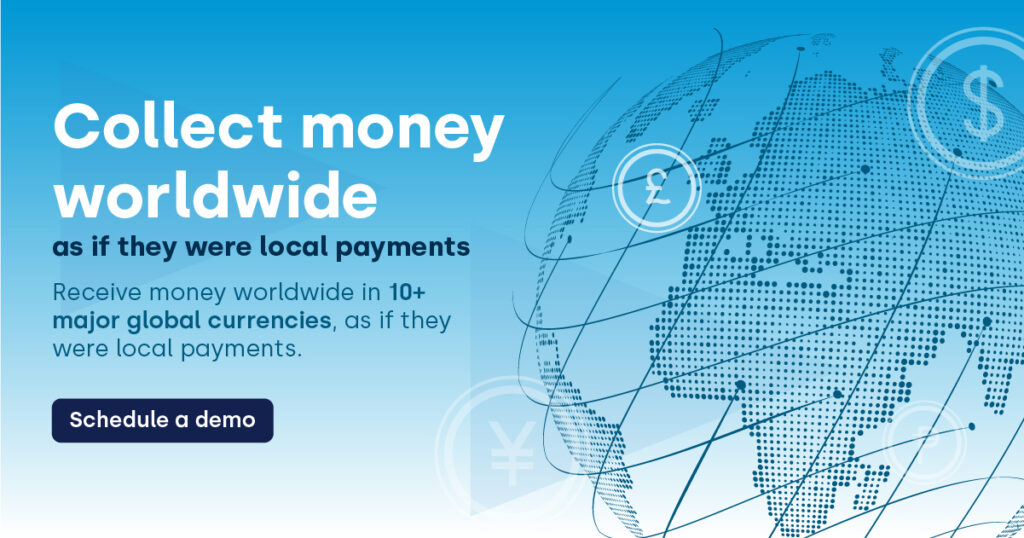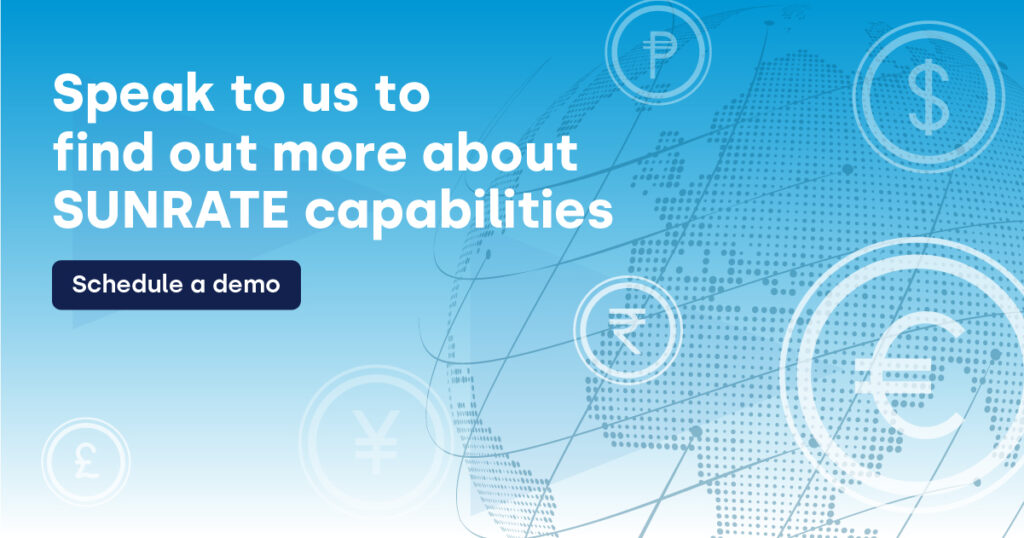

In today's rapidly evolving business landscape, efficient and streamlined payment systems are crucial for businesses to thrive. In the context of Thailand, a country known for its vibrant economy and growing business sector, unlocking the potential of business-to-business (B2B) payments holds immense significance.This article aims to unlock the full potential of B2B payments in Thailand, empowering businesses to excel in an increasingly competitive marketplace.

The current state of B2B payments in Thailand
Thailand's strategic location has positioned it as a gateway to the vibrant heart of Asia, which hosts the world's fastest-growing economy. The appeal of Thailand for expanding companies lies in its open and market-oriented economy, which fosters increased foreign direct investments, technology transfer, economic development, and employment opportunities. Being in close proximity to China and India, Thailand has gained recognition for its consistent economic growth, attractive incentives for foreign businesses, and cost-effective local workforce.
Thailand presents extensive trade prospects with China, India, and the countries comprising the Association of Southeast Asian Nations (ASEAN). Establishing a company in Thailand offers access to the Greater Mekong sub-region, where emerging markets provide exceptional business potential.
In the World Bank's 2020 Ease of Doing Business report, Thailand secures the 21st position out of 190 countries, reflecting its favorable business environment. Additionally, according to the US News & World Report's ranking of the Best Countries to Start a Business in 2020, Thailand stands at the top spot.
In Thailand's dynamic and rapidly evolving business landscape, the current state of B2B payments presents both challenges and opportunities. Traditional payment methods, such as cash and checks, still dominate the B2B payment landscape, posing limitations and inefficiencies that hinder the potential for growth and success.
One of the primary challenges faced by businesses in Thailand is the prevalence of delayed payments. Lengthy payment cycles create cash flow constraints, making it difficult for businesses to invest in growth initiatives and expand their operations. Additionally, the reliance on manual payment processes leads to increased reconciliation efforts, resulting in time-consuming and error-prone procedures. These delays and inefficiencies impede business operations and hinder the overall competitiveness of the market.
Transparency is another critical concern in the current B2B payment landscape in Thailand. The lack of visibility into payment statuses and limited access to transaction details make it challenging for businesses to track payments accurately and reconcile accounts. This opacity creates trust issues between buyers and suppliers, hindering effective business relationships. Furthermore, the fragmented nature of payment systems in Thailand adds complexity, making it challenging for businesses to have a unified view of their financial transactions.
High transaction costs associated with traditional B2B payments pose a significant financial burden for businesses in Thailand. Expenses related to manual processes, paperwork, and transportation of cash or checks contribute to higher operational costs. These costs not only impact individual businesses but also hinder the country's overall economic competitiveness.
To unlock the potential of B2B payments in Thailand, undergoing digital transformation is essential. Embracing modern payment technologies and digital platforms can significantly improve the efficiency, speed, and security of B2B transactions. Digital payment solutions, such as electronic funds transfers, online banking, and mobile wallets, offer businesses the opportunity to streamline their payment processes, reduce delays, and enhance cash flow management.
Recognising the importance of digitalisation, the Thai government has taken initiatives to promote a conducive environment for B2B payments. Regulatory frameworks and policies are being implemented to enhance security, encourage innovation, and support the growth of digital payment providers. Collaboration between the government, financial institutions, and technology companies is essential in driving the adoption of digital payment solutions and creating a robust ecosystem for B2B transactions.
The role of technology in transforming b2b payments
With rapid advancements in digitalisation, businesses in Thailand have a unique chance to harness the power of technology and revolutionise B2B payments, overcoming traditional limitations and driving significant benefits.
One of the key roles technology plays in transforming B2B payments is through the adoption of digital payment platforms and mobile wallets. These innovative solutions provide businesses with faster, more secure, and efficient payment options. By leveraging digital payment platforms, businesses can streamline their payment processes, reducing the time and effort required for payment settlement. The convenience and accessibility offered by mobile wallets enable businesses to make payments anytime, anywhere, enhancing overall operational efficiency.
In addition to digital payment platforms, the adoption of standardised electronic invoicing and payment systems is instrumental in transforming B2B payments. These systems digitise invoicing and reconciliation processes, eliminating the need for manual paperwork and reducing the risk of errors and delays. By digitising and automating these processes, businesses can gain real-time visibility into their financial transactions, enabling faster reconciliation, enhanced cash flow management, and improved decision-making.
Furthermore, technology empowers businesses with advanced data analytics capabilities, providing valuable insights from B2B payment transactions. By harnessing the power of data, businesses can gain a deeper understanding of customer behavior, market trends, and payment patterns. These insights can inform strategic decision-making, drive business growth, and enable businesses to identify opportunities for cost savings and efficiency improvements.
The role of technology in transforming B2B payments goes beyond individual businesses. Government initiatives and collaborations with financial institutions and technology companies have created a conducive environment for digital payment providers to flourish. This ecosystem encourages innovation, ensures security, and drives the adoption of digital payment solutions. The integration of technology in B2B payments not only benefits individual businesses but also contributes to the overall economic development of Thailand.
SUNRATE for an example has a proprietary tech engine, that simplifies transactions, offering transparent, real-time exchange rates. It streamlines processes, eliminating complexities and optimising efficiency. Enjoy hassle-free transactions with our user-friendly interface, while accessing the most competitive rates available.
Opportunities and Benefits of Digital B2B Payments
The shift from traditional payment methods to digital payment solutions opens doors to a wide range of advantages that can transform the B2B payment landscape in Thailand.
One of the primary opportunities offered by digital B2B payments is the improvement in cash flow management. Digital payment platforms enable businesses to receive payments faster, reducing the time it takes to process transactions. This timely access to funds empowers businesses to optimise their working capital, invest in growth initiatives, and seize new opportunities in the market. By streamlining the payment process, digital B2B payments contribute to smoother cash flow cycles, reducing financial strain and enhancing financial stability.
Digital B2B payments also bring significant operational benefits. Traditional payment methods, such as checks and cash, involve manual processes that are time-consuming and prone to errors. On the other hand, digital payment solutions automate the payment process, minimising manual intervention and reducing the likelihood of mistakes. This automation not only saves time but also frees up resources that can be redirected to more value-added activities within the business. Moreover, digital payment platforms provide real-time visibility into payment statuses, enabling businesses to track and reconcile transactions efficiently.
Furthermore, embracing digital B2B payments creates opportunities for businesses to expand their market reach and tap into new customer segments. Digital payment solutions enable businesses to overcome geographical barriers and engage in cross-border transactions more seamlessly. With the increasing interconnectedness of global markets, the ability to transact digitally becomes crucial for businesses seeking to establish international partnerships and explore new markets. Digital B2B payments also foster trust and collaboration by providing transparent and secure transactions, creating a conducive environment for business growth and establishing strong business relationships.
Another significant benefit of digital B2B payments lies in the wealth of data and insights that can be derived from these transactions. Digital payment platforms generate detailed transaction data, which can be analysed to gain valuable insights into customer behaviour, market trends, and payment patterns. These insights empower businesses to make informed decisions, identify areas for improvement, and develop targeted marketing strategies. Data-driven decision-making enables businesses to stay agile, adapt to market dynamics, and optimise their operations for greater efficiency and profitability.
Expand and scale your business with SUNRATE in Thailand
With SUNRATE, businesses can:

SUNRATE is an intelligent global payment and treasury management platform for businesses worldwide. Since its inception in 2016, SUNRATE is recognised as a leading solution provider and has enabled companies to operate and scale both locally and globally in 150+ countries and regions with its cutting-edge proprietary platform, extensive global network, and robust APIs.
With its global headquarters in Singapore and offices in Hong Kong, Jakarta, London and Shanghai, SUNRATE partners with the top global financial institutions, such as Citibank, Standard Chartered, Barclays and is the principal member of both Mastercard and Visa.
To find out more about how SUNRATE can scale one’s e-commmerce business in Thailand, connect with us today.

Share to
By clicking Subscribe, you have read and agreed to our《《Privacy and Terms》》

Commercial cards are reshaping the B2B payment landscape, presenting businesses with an exciting opportunity to embrace innovation and drive their financial processes to new heights.


Effortlessly and economically settle payments to your Chinese suppliers. When it comes to making international payments, businesses seek swiftness, simplicity, and affordability. This is especially crucial for transactions involving China, as businesses frequently encounter various obstacles like rigorous declaration procedures, currency restrictions, regulatory compliance, foreign exchange uncertainties, exorbitant fees, and language barriers during administrative […]


In recent decades, China has emerged as a global economic powerhouse, reshaping the dynamics of international trade and becoming a driving force behind the success of numerous businesses worldwide. Even though it is still considered as an emerging market, the sheer scale and potential of China’s market have drawn the attention of entrepreneurs and corporations […]

We hope to use cookies to better understand your use of this website. This will help improve your future experience of accessing this website. For detailed information on the use of cookies and how to revoke or manage your consent, please refer to our < privacy policy >. If you click the confirmation button on the right, you will be deemed to have agreed to use cookies.